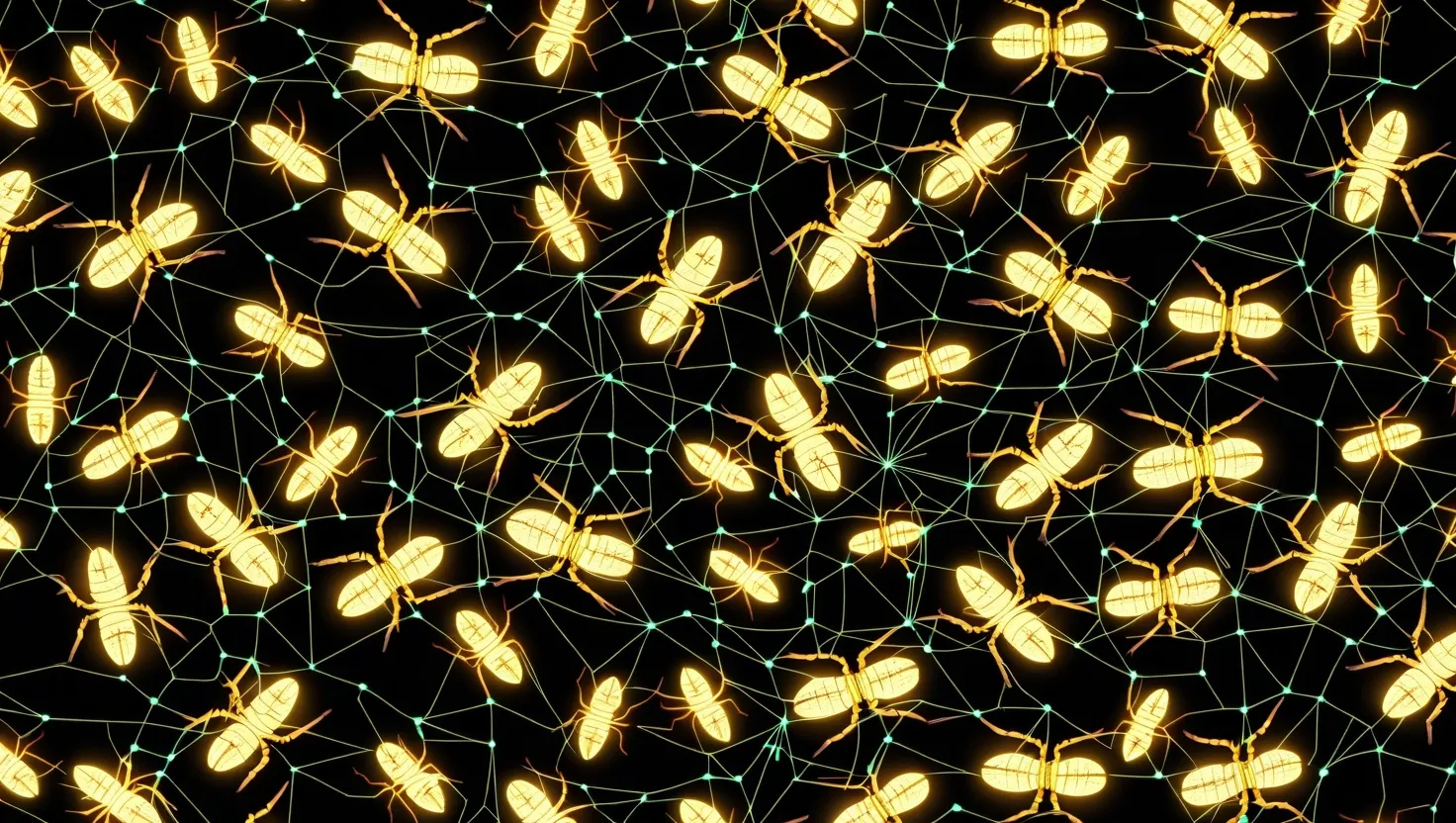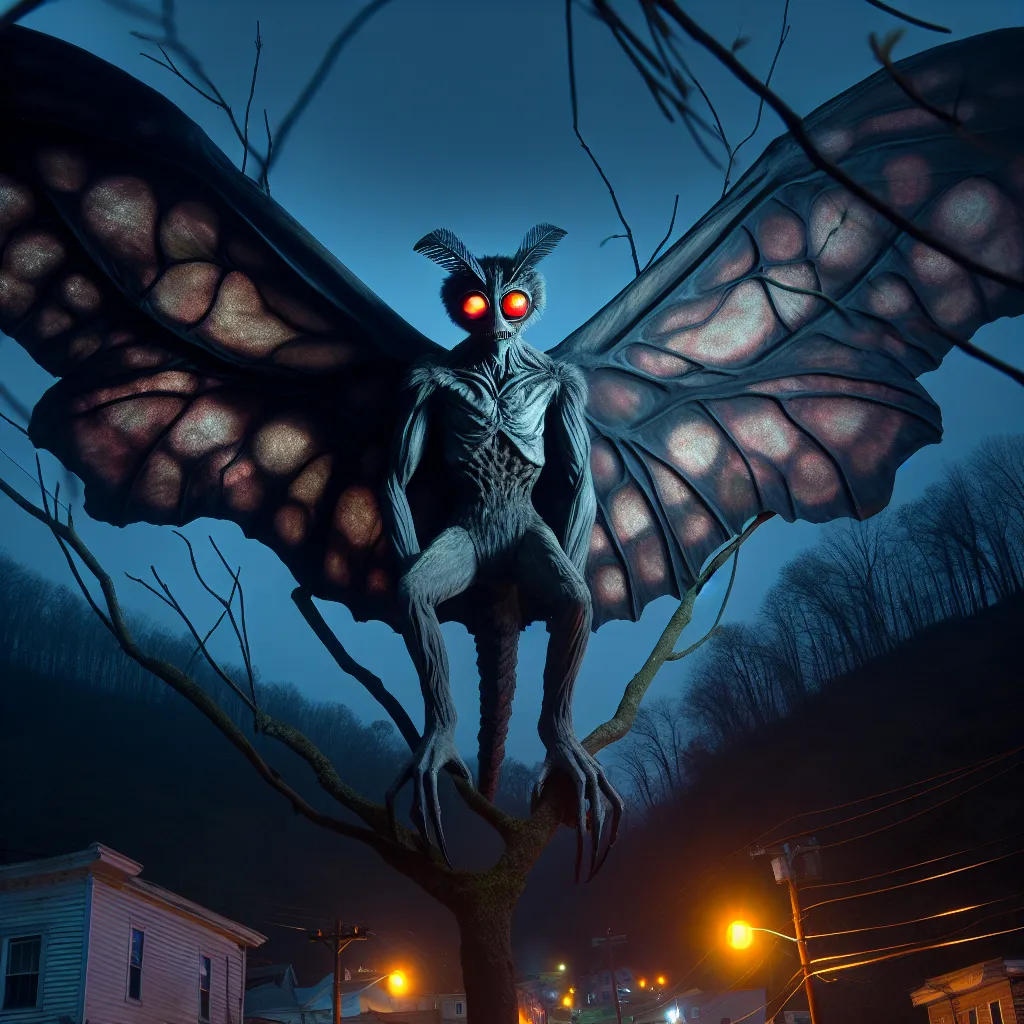As I delve into the fascinating world of insect swarms, I find myself pondering a theory that challenges our conventional understanding of intelligence and consciousness. The idea that insects might be creating a collective quantum consciousness is both intriguing and unsettling, suggesting that these tiny creatures could be more than just instinct-driven masses. Let’s explore this bizarre hypothesis and see where it takes us.
In the realm of social insects like ants and bees, we observe a level of collective intelligence that is nothing short of remarkable. These insects build complex architectural structures, hunt efficiently over vast areas, and make optimal decisions about nest locations without any apparent central leadership. For instance, when a swarm of bees is searching for a new nest site, they use a sophisticated communication system known as the “waggle dance.” This dance informs other bees about the quality and location of potential sites, leading to a democratic decision-making process that is both efficient and accurate.
But how do these insects achieve such feats with brains that are smaller than a grain of rice? The answer lies in the concept of collective cognition, where the cognitive abilities of the group far surpass those of any individual member. This phenomenon is not unique to insects; it can also be observed in migrating birds and even in human societies, albeit in different forms.
The theory of collective quantum consciousness takes this idea a step further by suggesting that these insects might be tapping into quantum effects to enhance their collective intelligence. This is where things get really interesting. According to some researchers, quantum mechanics could play a role in the emergence of consciousness, not just in complex biological systems but potentially even in the primordial soup of the early universe.
The Orch-OR (Orchestrated Objective Reduction) theory, proposed by Roger Penrose and Stuart Hameroff, suggests that consciousness arises from quantum processes in the brain. This theory posits that the collapse of quantum superpositions into definite states produces conscious experience. If we apply this idea to insect colonies, it raises the possibility that these collective entities could be processing information in a way that is fundamentally different from classical computation.
Imagine a colony of ants as a single, distributed quantum computer, where each ant is a node processing and sharing information in a quantum-coherent manner. This would allow the colony to make decisions that are not only efficient but also potentially more intelligent than the sum of its parts. It’s a mind-bending concept that challenges our traditional views of intelligence and consciousness.
But what if this collective quantum consciousness is not just limited to insects? The rise of brain-computer interfaces (BCIs) and the increasing interconnectedness of human societies through the internet and other technologies are leading some to speculate about the emergence of a human hive mind. BCIs, which enable direct communication between the brain and digital devices, could potentially enhance human cognition and foster a new form of collective intelligence.
In the future, as more people gain access to these technologies, we might see the formation of a global brain, where individual thoughts and memories are interconnected and shared. This could lead to significant advancements in education, business, and innovation, but it also raises profound ethical and privacy concerns. The idea of being able to “read” minds or control thoughts through BCI technology is both exhilarating and terrifying.
As we consider the implications of this collective quantum consciousness, we must also think about the potential risks. If a group of insects or humans can achieve a level of intelligence that surpasses individual capabilities, what does this mean for our understanding of free will and individuality? Could we be losing control over our individual thoughts as we become part of a larger, interconnected whole?
The concept of hive consciousness is not new, but its application in the context of quantum mechanics and modern technology is. It forces us to question whether the boundaries between individual minds are as clear-cut as we once thought. If consciousness can emerge at a collective level, does this mean that our individual experiences are just part of a larger, quantum-coherent whole?
As I reflect on these ideas, I am reminded of the intricate social structures of insects and the sophisticated ways in which they communicate and make decisions. It’s clear that there is more to these creatures than meets the eye, and their collective behavior could hold secrets to understanding the very nature of consciousness.
The possibility that insects are secretly quantum computers, processing information across millions of tiny minds, is a hypothesis that is both captivating and unsettling. It challenges us to rethink our place in the world and the nature of intelligence itself. Whether this theory holds water or is just another case of seeing patterns in the chaos of nature remains to be seen. However, one thing is certain: the world of insect swarms and collective consciousness is a fascinating and mysterious realm that continues to inspire and intrigue us.
As we continue to explore this bizarre world, we are forced to confront questions about the future of human society and the potential implications of emerging technologies. Will we see the rise of a human hive mind, where individual thoughts are interconnected and shared? Or will we find ways to harness the power of collective intelligence without sacrificing our individuality?
The journey into the heart of this mystery is just beginning, and it promises to be a wild and thought-provoking ride. As we buzz through this mind-bending landscape, we are reminded that the natural world is full of secrets waiting to be uncovered, and sometimes the most unlikely creatures can teach us the most profound lessons about ourselves and the world around us.






